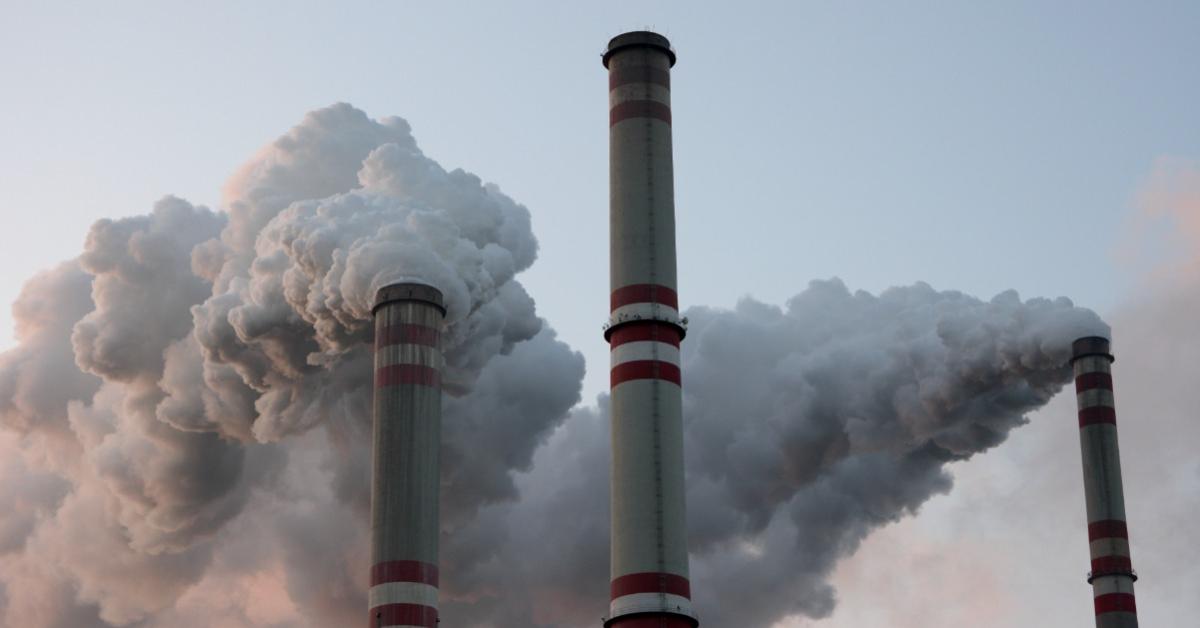This week we’ve seen a relatively unprecedented environmental phenomenon in New York City. Canadian wildfires have led to the worst air quality New York has ever had—and the worst air quality anywhere in the world right now. The air has taken on a sepia tint, and the city looks like the setting of a postapocalyptic movie.
Many individuals are blaming the situation on climate change and calling for mass government intervention. Alexandria Ocasio-Cortez, for example, has used it to renew her call for a Green New Deal. This is an example of what Mises Institute fellow Joshua Mawhorter has referred to as the statist non sequitur: “The statist non sequitur involves the existence of a problem followed by the alleged solution of statism. It is typically put in the form of a statement or a loaded question presupposing the necessity of a ‘solution’ imposed by the state as the obvious and sole conclusion.”
We must provide a better answer than the statist non sequitur.
For this we can turn to perhaps the loudest voice in defense of fossil fuels, Alex Epstein. Fossil fuels are routinely attacked for their alleged cause of extreme climate events like this wildfire-induced haze. However, Epstein has argued in his book Fossil Future: Why Global Human Flourishing Requires More Oil, Coal, and Natural Gas—Not Less that even conceding the most radical anti–fossil fuel claims regarding global warming, fossil fuels are still a benefit to society. “Even if we concede fossil fuels have caused global warming,” he asks, “how have climate related deaths trended since the proliferation of fossil fuels?” He replies:
Over the last century, as CO2 emissions have most rapidly increased, the climate disaster death rate fell by an incredible 98 percent. That means the average person is fifty times less likely to die of a climate-related cause than they were in the 1920s. . . .
A dramatic reduction in climate-related death has to be the result of at least one of two factors: (1) an improvement in the state of climate conditions and/or (2) an improvement in the state of our ability to protect ourselves from climate. . . .
The dramatic change has to be an improvement in our ability to protect ourselves from climate dangers such as extreme temperatures, drought, storms, floods, and wildfires.
How have we gotten so good at protecting ourselves from climate?
In large part by using fossil-fueled machine labor.
We use fossil-fueled construction machines to build sturdy buildings. We use fossil-fueled heating machines to produce warmth when it’s cold and fossil-fueled cooling machines to produce cool air when it’s hot. We use fossil-fueled irrigation machines to alleviate drought.
To put the relationship between fossil fuels and our safety from climate in a sentence: ultra-cost-effective fossil fuel energy powers the machines that produce unprecedented protection from climate.
Epstein demonstrates that even if fossil fuels create climate change and cause significantly worse climate conditions, the vast technological benefits of fossil fuels have been so overwhelming that that there have been fifty times fewer climate deaths than there were one hundred years ago. Therefore human flourishing is stronger thanks to the effects of fossil fuels.
With these facts in mind, what is the best way to deal with forest fires? Epstein explains that there are three ways to fight wildfires—reducing fuel load, building fire barriers, and intelligently fighting fires—and that all of them are more effective with the help of fossil fuel–powered machinery.
Fuel load reduction consists of intentionally scorching fire-prone areas to remove potential wildfire fuel (such as dead trees and leaves) before it piles up enough to feed a forest fire. These controlled burns used to be done regularly in western US forests until the US Forest Service and environmentalists put a stop to them. Epstein thinks we should reimplement fuel load reduction, writing:
Today we have the ability to use fossil-fueled machines to do far more targeted controlled burns by creating firebreaks to prevent uncontrolled spread, planning the exact area to be burned, and assessing success with satellite imagery or via airplane. In addition to controlled burns, we can use fossil-fueled machine labor to do logging, in which case we actually convert the wood that could cause wildfire into wealth. We can also do mechanical brush clearing, using tractors with mulchers and other equipment attached.
Fire barriers are another great way to control forest fires. The same fossil fuel–burning engines that now allow us to better execute controlled burns also allow us to build larger, stronger fire barriers “between forests and people—or, if desired, between one area of forest and another.”
The last resort in controlling wildfires is of course firefighting, and this has also been improved by fossil fuels. As Epstein explains, “We use fossil-fueled machines and fossil fuel materials to fight fires when they start. We use high-energy fossil-fueled machines, like trucks and aircraft for transporting water, and flame-resistant, oil derived materials such as Nomex to protect firefighters.”
Every method of fighting fires—and thus for protecting against their wide ripple effects, like hazardous air quality—has been vastly improved by fossil fuels. Those calling for political action against fossil fuel use are therefore calling for more wildfire destruction, not less.
























